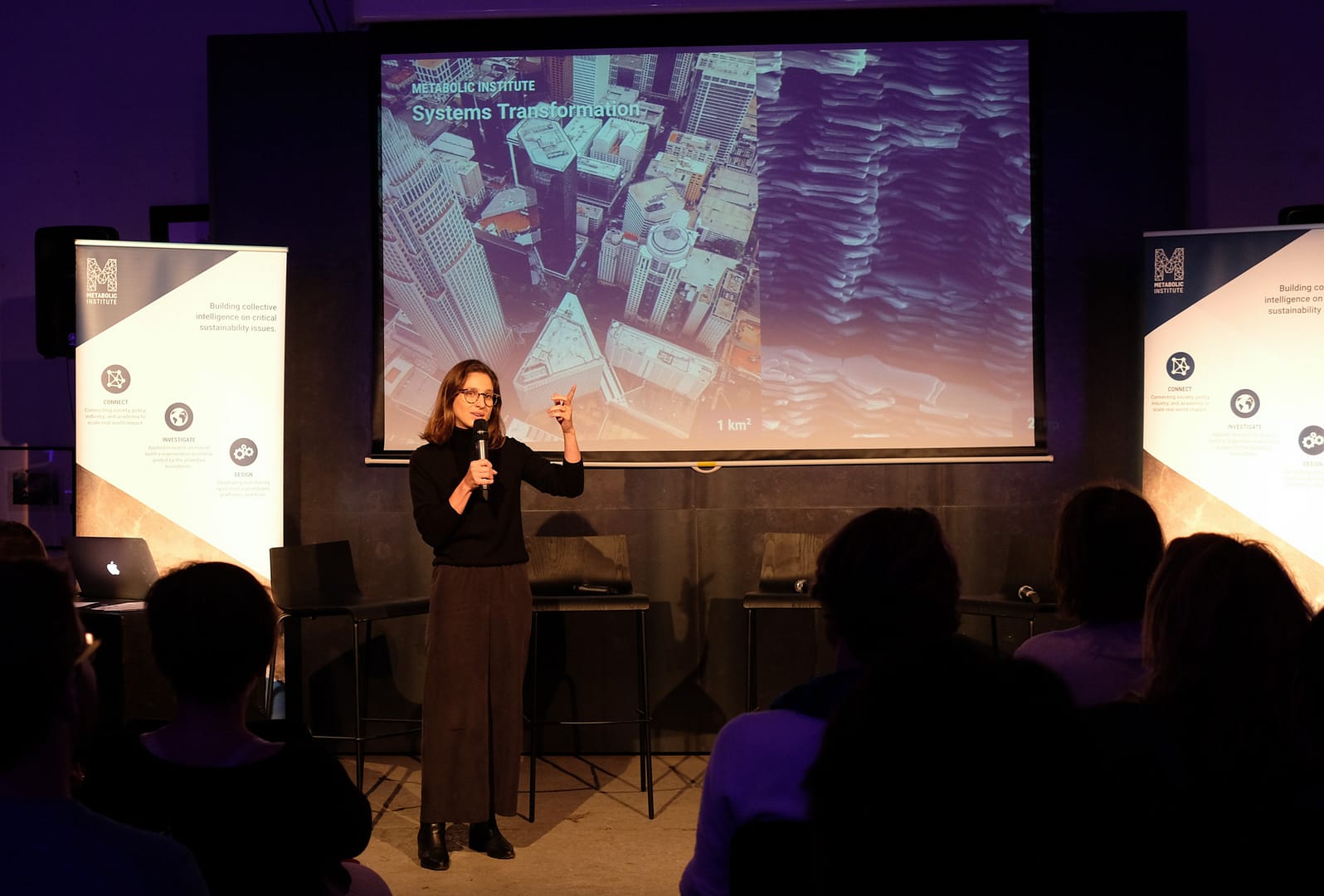This week marks the public launch of the Metabolic Institute, a non-profit think tank working at the intersection of academic research and real-world experimentation. In close collaboration with Metabolic, the Institute will tackle critical questions on how to build a regenerative economy guided by the planetary boundaries.
On October 15 attendees were ferried across the water from the De Ceuvel cleantech playground to De Galerie, for the launch of our new applied research lab. Metabolic founder Eva Gladek opened the evening by outlining the formidable sustainability challenges that require a multi-pronged approach, and how the Institute would complement Metabolic’s consulting and venture-building work. “We realised that in tackling the types of challenges that we’re trying to tackle, you actually need different approaches, different methods to really transform society to a more sustainable state,” she said. “And for us, the Institute was a key piece that was missing.”

Tilt the scales in the world’s favor
Metabolic Institute director Liz Corbin was next on stage, explaining how the contrast between her micro-scale specialization in materials design and the macro-scale work of Metabolic across a variety of sectors inspired the launch of the think tank. “As a society, what we are really good at is creating expertise at specific scales: at the micro, meso and macro,” she said. “However, what we are really bad at is connecting expertise across scales to create a really holistic understanding of a system. That’s where the Institute comes in. We are quickly moving towards a world where the types of problems we are trying to address are far too complex for any one expert at any one scale to solve. So the challenge becomes not how to be clever at any one scale, but how to be clever about connecting these scales together.”
The Metabolic Institute is taking on a range of initiatives in pursuit of this mission, Corbin revealed, including EU-backed projects REFLOW and FOODE. REFLOW is exploring how key material flows such as plastics, textiles, organic waste, and construction materials move through urban landscapes, while FOODE is examining citizen-driven urban food initiatives across 15 European pilot cities.
Corbin said the Metabolic Institute would seek to take a regenerative design approach to its work, orientated around rebuilding ecosystems and creating net-positive impacts “so that we can leave the world in a richer, more resilient state than we found it”. Another priority is open access to knowledge that can help inform sustainability efforts, with the Metabolic Institute actively working to support the efforts of initiatives like SciHub, Creative Commons, Public Library of Science, and PubPub in their attempt to shape the future trajectory of the sector towards open access.

Open for debate
Corbin’s presentation was followed by a lively panel debate on the topic of open data for a sustainable economy, moderated by Gladek. Juan-Carlos Goilo, senior information specialist at the Municipality of Amsterdam’s CTO, urged businesses to follow the city’s lead in opening up data for the good of all. “We have all these companies that are not opening up their data that are doing crucial industrial work, producing waste or processing waste, so I think that’s the core problem preventing a holistic view,” he said.
Marleen Stikker, founder of the Waag Society, warned that there can be dangers in open access to data in an extractive economy, adding that companies believe “data is the new oil”. “So at the moment we think of data as something that we have to sell, it is very problematic,” she said. “So we have to change the narrative: data is oxygen. You don’t take oxygen away from society.”
Corbin concluded the debate by citing the example of Volvo inventing the three-point seat belt in the 1950s and deciding to share this invention with competitors, in order to make the global population safer. “They decided that some data and some innovation is so important to the greater good that it has to be shared,” she said. “Particularly when it comes to environmental issues, it boggles my mind that we can openly share the seat belt to protect humans, but we’re not doing the same for the environment.”
For more, read up on the Metabolic Institute’s approach and projects, or contact director Liz Corbin at [email protected]










